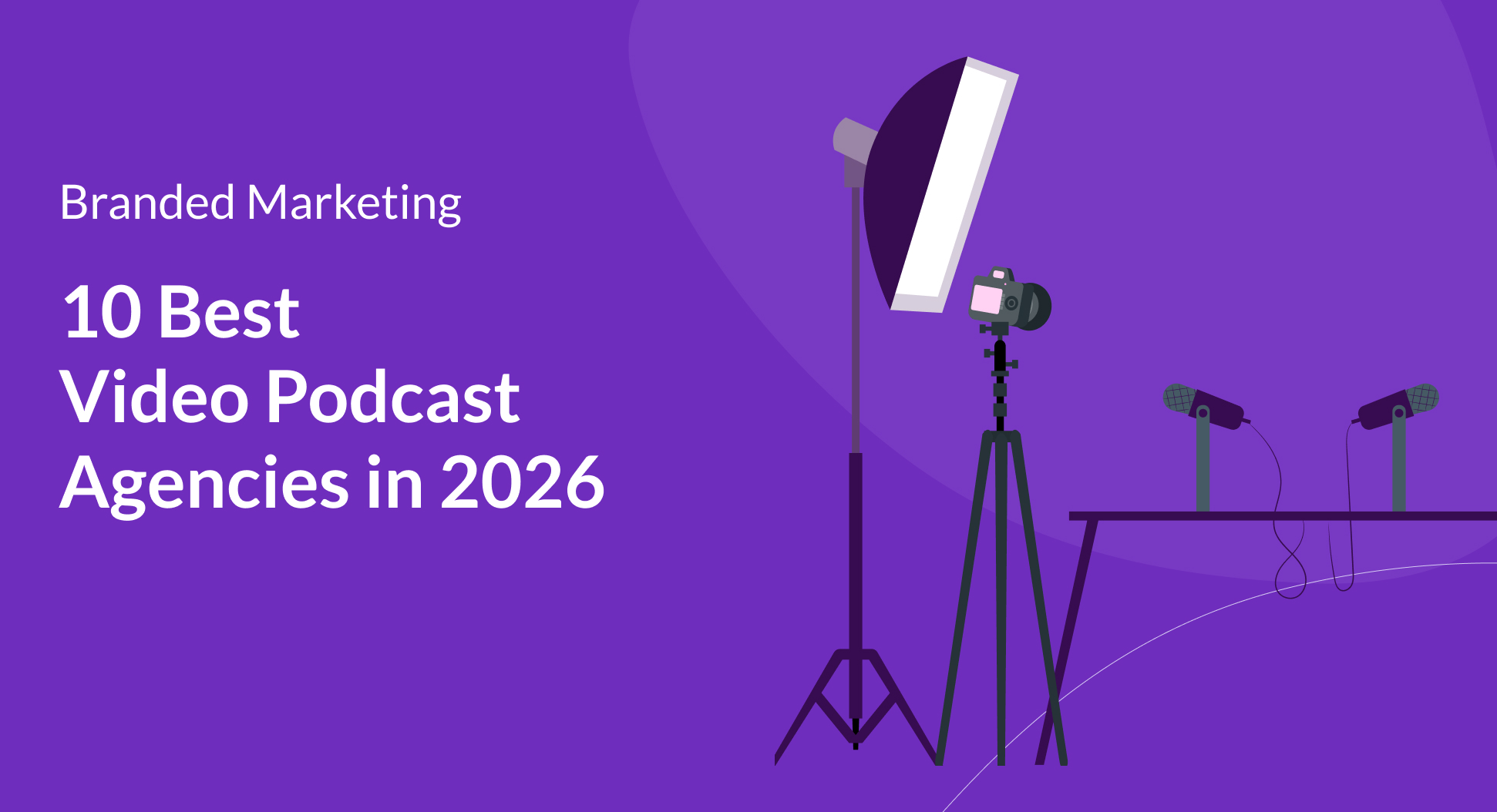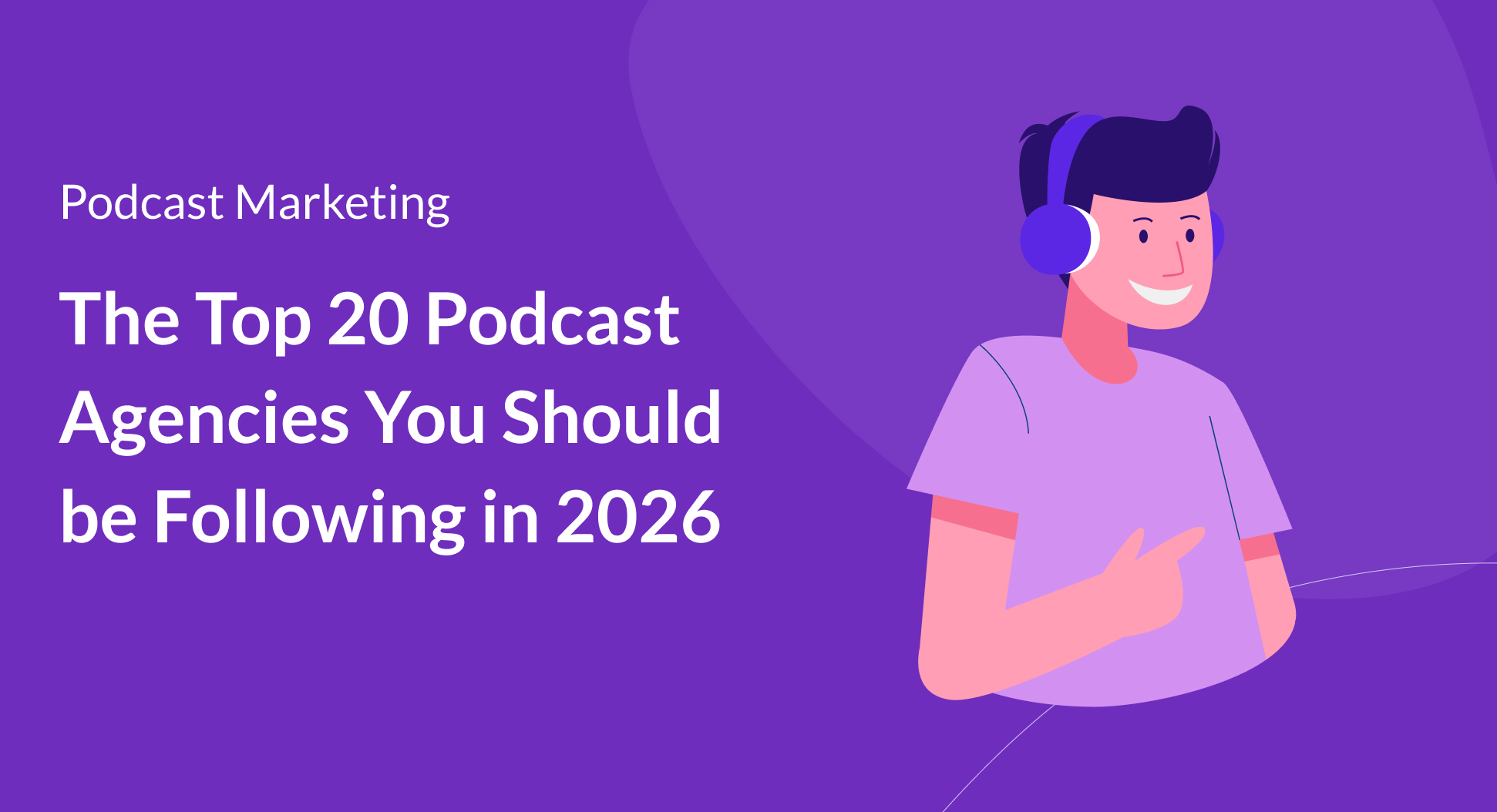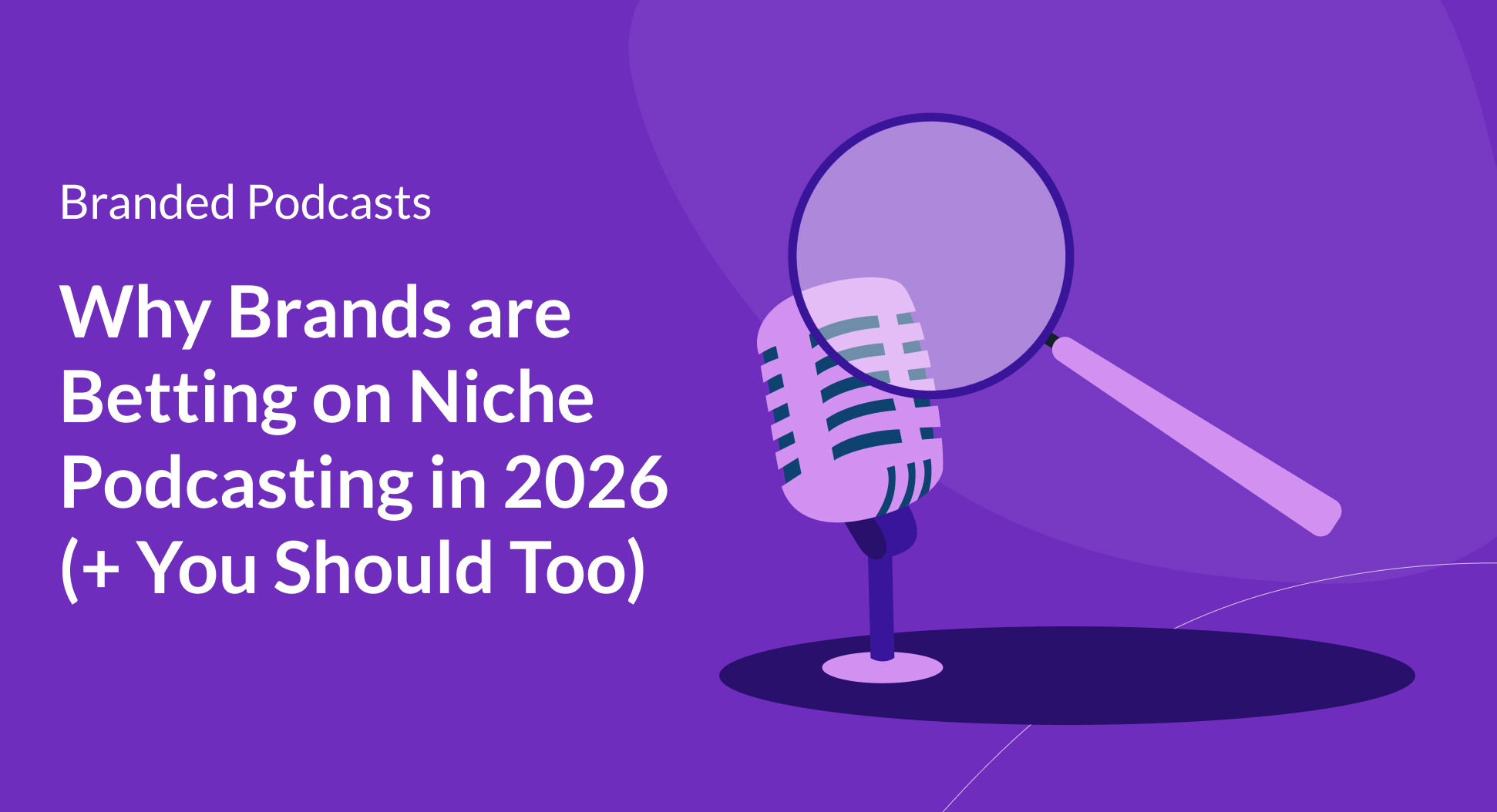Contents
Starting a podcast is one thing; building a dedicated audience is another.
With 4.25 million podcasts circulating the airwaves, standing out and attracting loyal listeners can feel daunting, especially if you're starting from scratch. But with the right approach, your brand's podcast can grow into an influential platform that engages listeners, builds credibility, and drives results.
In this blog, we'll cover six essential tips to help you gain traction and build a strong audience from the ground up. Whether you're looking to boost your brand's authority or connect with potential customers, these strategies will set you on the path to podcasting success.
1. Know your audience
Before you commit to a growth strategy, it’s important to be crystal clear on who your intended audience is. Your podcast can’t (and shouldn’t) be for everyone – so the key to building an audience is finding your niche.
Figure out what unique value your podcast brings to the table and consider the audience that is most likely to listen to your show. Maybe your unique value is through your format, hosts, guests, or expertise.
Whatever it is, sit down with your team to create an ideal listener profile for who your target audience is. For example, How I Built This by Guy Raz is going to appeal to entrepreneurs whereas Super Soul Sunday by Oprah Winfrey is for spiritual seekers.
Research is key when getting to know your audience because it will help you determine who exactly they are and where they live online. To get an in-depth understanding of your ideal listeners, ask yourself:
- What are their motivations?
- What are their pain points and fears?
- Are there media outlets they gravitate to?
- What social media platforms do they use?
- What is their level of income and education?
Once you have your ideal listener persona created, it’s important to verify you’re actually reaching and resonating with the people you intend to. To do this, we suggest leaning on podcast analytics tools like CoHost’s Advanced Audience Demographics and B2B Analytics – both are available regardless of your current hosting platform.
2. Create a podcast trailer
Creating a podcast trailer is important whether you’re already established or launching a brand-new podcast. A trailer allows you to generate anticipation and start building an audience before your podcast officially launches its first episode.
Use the trailer as a promotional tool within your organization and across existing marketing channels such as social media, newsletters, communities, or your podcast’s landing page. This way you can build excitement around the launch of the podcast, possibly even running a contest to increase early engagement.
When you publish your trailer on your hosting platform, pin it to the top of your feed and label it as your trailer. Some best practices include:
- Include snippets from future episodes to serve as teasers
- Let listeners know what they’ll be getting from the podcast
- End with a call to action that encourages users to follow your podcast
- Provide a short overview of the topics that’ll be covered in your podcast
- Keep it short – 30 seconds to a minute and a half is enough to pique interest
3. Include compelling calls to action
A call-to-action (CTA) at the end of every episode is an effective way to encourage your podcast listeners to take the next step necessary for you to achieve your desired goals. Typically to grow your audience within listening platforms, you need people to do four things:
- Subscribe/follow your show
- Review your show
- Rate your show — ideally with five stars
- Share your podcast with family and friends
Whenever someone does one of these four things, it helps to boost discoverability and increase your chances of ranking on popular podcast charts.
The key, however, is to only use one CTA at the end of each episode to prevent listeners from getting confused about what action to take. Make sure this one CTA is clear and concise. Some podcasters opt to include what the action matters as well to further incentivize listeners into action.
4. Incorporate your podcast into your wider marketing mix
We say this often (and we’ll say it again) – your podcast shouldn’t live in a silo.
This might seem obvious, but many brands neglect to incorporate their podcast into their existing marketing mix. This is critical if you’re looking to leverage your existing audience base and boost your reach organically.
One of the nice things about podcast content is that it’s very easy to repurpose across various platforms and channels. To learn more in-depth about how to repurpose your podcast content, we suggest downloading our complete guide to integrating branded podcasts into your marketing mix.
But if you’re just looking for some quick tips, here are some tactics we suggest tapping into:
- Turn stand-out episode moments into audiograms
- Post short video clips from your podcast on social media
- Create complimentary blog posts for your podcast episodes
- Alert subscribers of new episode releases in your newsletter
- Summarize your podcast’s findings in an ebook or downloadable
- Provide sample social copy and custom assets to your podcast guests to share with their network
- Include a podcast landing page on your company’s website to serve as a “one-stop-shop” for all podcast-centric content
5. Optimize your podcast content for SEO
SEO isn't just for websites; it’s a crucial aspect of podcasting that can significantly enhance your visibility and audience reach. By optimizing your podcast content for search engines, you can ensure that more potential listeners discover your show.
Here are some quick tips for optimizing your podcast SEO for search engines and listening apps:
- Write podcast show notes: Create valuable, easily skimmable, and correctly formatted podcast show notes for every episode you release. Your show notes should provide the listener with the resources you mentioned throughout your podcast episode and any links for your CTAs.
- Create podcast transcriptions: Search engines aren’t able to analyze audio files (yet), so it’s important to transcribe your podcast to boost your online discoverability. We suggest using CoHost’s automatic transcription tool for AI-powered, quick, accurate podcast transcripts.
- Find your target keywords: Use a tool like SEMRush or Moz to find low-competition, high-traffic keywords that fall into your podcast’s nice.
- Optimize for relevant keywords: Everything from your episode descriptions and show page to landing page content and complimentary blog posts, you’ll want to optimize for the target keywords you identified above. Make sure to avoid keyword stuffing, as that will hinder your podcast SEO results.
6. Track your podcast’s performance
Without knowing how your podcast is performing, there’s truly no way to know how you can improve.
Take some time to consider and ask yourself:
- What podcast metrics are important to you?
- What business goals would you like your podcast to achieve?
- How can I connect these metrics to my business goals (KPIs) to get a better understanding of the larger picture?
The goal of this exercise is to connect your qualitative podcast goals to quantitative podcast metrics to better understand your podcast’s performance over time, formulate data-driven growth strategies, and ultimately prove podcast ROI.
For example, if the primary goal of your podcast is to engage with a specific audience, you’ll need to verify your show is reaching and resonating with the right people. You can verify this using audience demographic information and monitoring engagement metrics like consumption rate, total listen time, and drop-off rates.
Keep track of the data that matters most to you and informs your overarching podcast goals. This will ultimately help you build an audience since you’ll be much better equipped to create content that resonates with them and keeps them coming back for more.
Are you ready to grow your branded podcast?
Building a dedicated podcast audience may seem challenging, but with the right strategies, it’s entirely achievable. By understanding your audience, creating engaging content, and optimizing for visibility, you can transform your podcast into a powerful tool for brand growth and engagement.
Remember to prioritize knowing your listeners, creating compelling trailers, and incorporating effective calls to action. Don't forget to weave your podcast into your broader marketing mix and focus on SEO to enhance discoverability. Lastly, consistently track your podcast’s performance to refine your approach and ensure you're meeting your goals.
If you’re interested in learning more about Quill’s podcast marketing services, please get in touch with our team of podcast experts.

.avif)







.png)

.png)




.png)
.png)
.png)
.png)